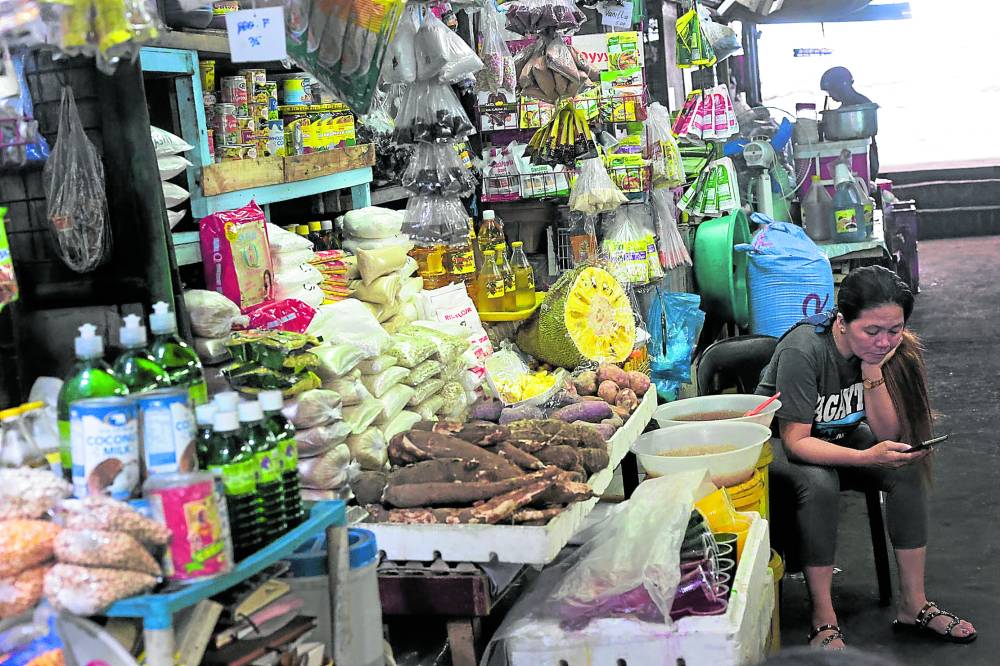MANILA, Philippines — Analysts expect inflation in the Philippines to settle at an average of 3.7 percent this year, a slight improvement from the 3.8 percent consensus back in April.
According to the Monetary Policy Report of the Bangko Sentral ng Pilipinas (BSP) released on Monday, forecasters surveyed said they expect “within-target inflation over the policy horizon, although settling at the upper end of the target range as uncertainty lingers.”
“Upside risks continue to dominate due mainly to supply disruptions,” the BSP said.
This is why the BSP is being “very careful” not to cut rates too early to avoid stoking inflation.
READ: BSP unlikely to cut interest rates too soon this year, says think tank
While average price growth is expected to return to the target band in 2024 after settling above that range in the last two years, BSP Senior Assistant Governor Iluminada Sicat said the central bank was treading lightly when it comes to the timing of easing.
Higher rate
“Indeed, we are anticipating that higher inflation rate will be observed from May to July but thereafter, we are projecting that inflation will revert to the target range,” Sicat said at an economic forum on Monday.
“We foresee inflation to be within the target, but on the upper end of the target range. That is precisely the reason why the BSP has been very careful not to bring down interest rates too early, or else we may not be able to address some of the upside risks that we are seeing in the future,” she added.
The peso became more volatile last week after Governor Eli Remolona Jr. struck a less hawkish tone and floated the possibility of two 25-basis point rate cuts this year, with the first one possibly in August and ahead of the US Federal Reserve’s own easing.
READ: BSP chief unfazed by U.S. Fed’s hawkish signals
The central bank chief said he was not worried about such a move’s impact on the peso, which may come under pressure if local yields become less attractive to capital inflows while interest rates are still high elsewhere.
17-year high
This month, the BSP’s policy rate was kept at a 17-year high of 6.5 percent for the fifth straight meeting.
READ: BSP keeps key rate at 17-year high as inflation risk remains
Remolona assured the market that the BSP has “ample reserves” to defend the peso against speculative attacks. A weak currency—which breached the 58-per-dollar level last week—can fan inflation by making imports more expensive.
For his part, Finance Secretary Ralph Recto, who also joined the same economic briefing, said a rate cut in the third quarter was “very much possible.”
“It all depends on the inflation outlook and I suppose what the Fed does. Those spreads should not be too different between the US and the Philippines or else you might have a flight to safety,” said Recto, who represents President Marcos’ Cabinet in the Monetary Board.
“But yes, it seems like inflation is going down … Surely, I don’t expect interest rates to go any higher. If not, there’s time they’ll start going down. Maybe 150 basis points in the next two years,” he added. INQ


